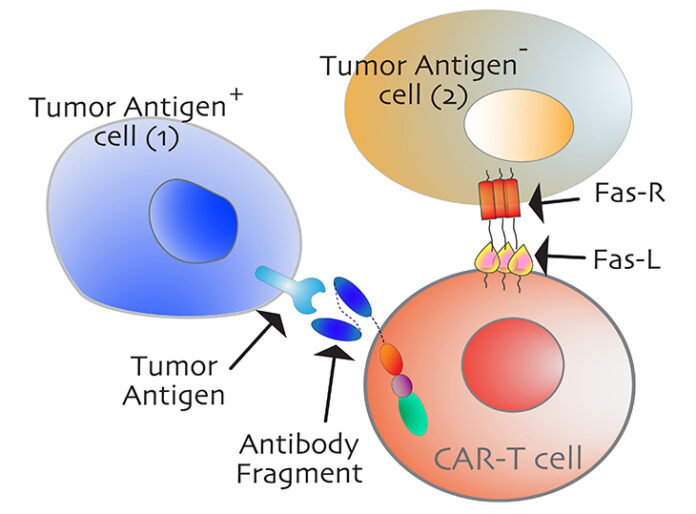The CD95 receptor can be used alongside immunotherapy to kill cancer cells
By KATIE HELLMAN — science@theaggie.org
Researchers from the UC Davis Comprehensive Cancer Center have identified a way to trigger the death of cancer cells. This new advancement could pave the way for the development of more effective cancer treatments.
The findings were published in the Nature journal Cell Death & Differentiation, which discusses the epitome, a section of protein that can activate the larger protein, on the CD95 receptor (also known as the death receptor). The subsequent death of cells was observed specifically in ovarian cancer.
“Despite its regulatory role and elevated function in ovarian and other solid tumors, another tumor-enriched death receptor called Fas (CD95) remained undervalued in cancer immunotherapy until recently,” the study states.
The CD95 receptors are located on cell membranes and release a signal upon activation, causing the cells to die. This new discovery could lead to the further development of existing cancer therapies, such as chimeric antigen receptor (CAR) T-cell therapy. This is a type of immunotherapy treatment that uses genetically modified T-cells (a type of immune cell) to kill cancer cells.
Current cancer treatments typically involve a combination of surgery, chemotherapy and radiotherapy. These can be very successful and allow patients to go into remission, which is when the signs and symptoms of their cancer are gone. However, patients can also relapse after their original treatment, which is why immunotherapies can help — they can be more successful at preventing cancers from recurring. Immunotherapies activate antibodies that allow solid tumors to shrink, although clinical trials are still underway to try and maximize their effects.
Jogender Tushir-Singh, associate professor in the department of medical microbiology and immunology, is hopeful that these new findings will improve the future of cancer treatments.
“This is a definitive marker for bystander treatment efficacy of CAR-T therapy,” Tushir-Singh stated in an interview with UC Davis Health. “But most importantly, this sets the stage to develop antibodies that activate Fas, selectively kill tumor cells, and potentially support CAR T-cell therapy in solid tumors.”
Now that the specific epitome has been identified, Tushir-Singh and other researchers can work on designing a new antibody class that can activate the CD95 receptor. This can also create a CAR-T bystander effect, where cancer cells are killed and CAR-T efficacy increases at the same time.
In bystander killing, “…targeted tumor cells are destroyed along with bystander tumor cells, regardless of whether they express an antigen,” according to an article by hospital network Mount Sinai.
Written by: Katie Hellman — science@theaggie.org




